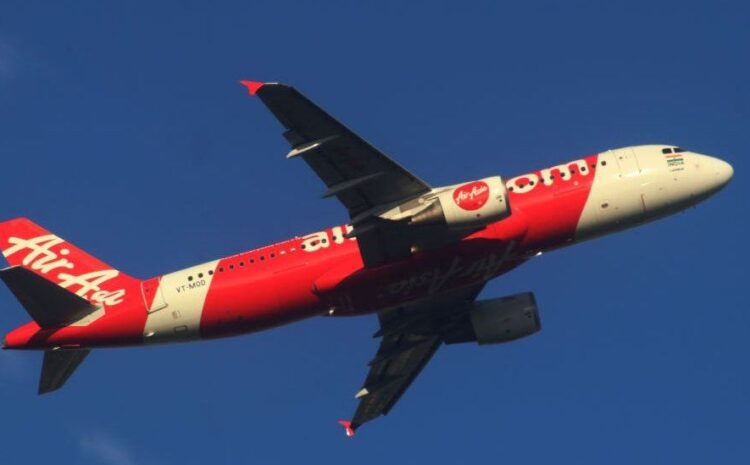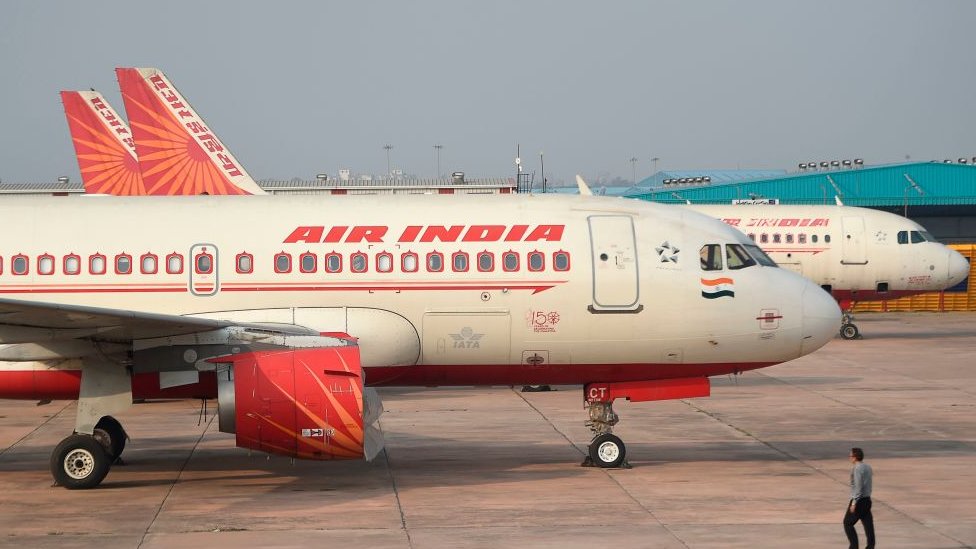
GETTY IMAGES image captionTata has upped its stake in the Indian-based joint venture with AirAsia from 51% to 84%
On Tuesday the company announced it would increase its holdings in the Indian-based joint venture with AirAsia from 51% to 84%.
AirAsia, owned by Malaysian tycoon Tony Fernandes, has been scaling back its operations during the Covid pandemic.
Last week Tata also put in a bid for the country’s struggling national carrier Air India.
Tata Group is paying AirAsia around $38m (£28m) for the increased stake in the AirAsia India joint venture which began in 2014.
The deal puts the Indian conglomerate firmly in command of the budget carrier.
AirAsia has been looking to reduce its cash-burn and its Japan unit filed for bankruptcy last month.
 IMAGE COPYRIGHT GETTY IMAGES
IMAGE COPYRIGHT GETTY IMAGESAirAsia India has struggled to make money in a market considered to be one of the world’s toughest due to high fuel taxes and fierce competition.
It said “India is a non-core market” and the transaction would allow it to concentrate on recovery in its key markets of Malaysia, Thailand, Indonesia and the Philippines.
The Tata Group – widely known as the Tatas in India – which also owns Jaguar Land Rover, originally founded the airline in 1932 but sold its stake to the government in the 1950s.
Tata also operates the Vistara airline in partnership with Singapore Airlines.

Tatas back in full force
By Nikhil Inamdar, India business correspondent
With the Tatas now in full control of AirAsia India, they will get a significant say in the running of the airline, which has had a tumultuous run and faced stiff competition from rivals since it launched operations back in 2014. AirAsia India presently has under 7% market share.
The deal also marks the return of the Tatas to the aviation market in full force, displaying a stronger commitment to deploy capital and resources to make its aviation ambitions a success, say experts.
“This could disrupt India’s aviation sector. The Tatas are bringing back air transport as their core revenue and business driver,” aviation expert Mark D Martin (MRAeS), founder of Martin Consulting, told the BBC.
“They have a foot in the low-cost carrier space with Air Asia, in the niche luxury segment through Vistara, and in all probability, Air India will go back to them as well.”
The major challenge for the Tatas would be to derive “operational synchrony” among its various brands and manage them without clashes and overlaps, according to Mr Martin.
Also, Vistara and AirAsia India have together lost around $845m through March this year, according to the Centre for Asia Pacific Aviation (CAPA), with Covid-19 exacerbating the challenges facing the airline industry.
But the Tatas are in the game for the long haul believe experts. “They will be looking at a 30-40-50 year investment horizon to script the turnaround story” added Mr Martin.

